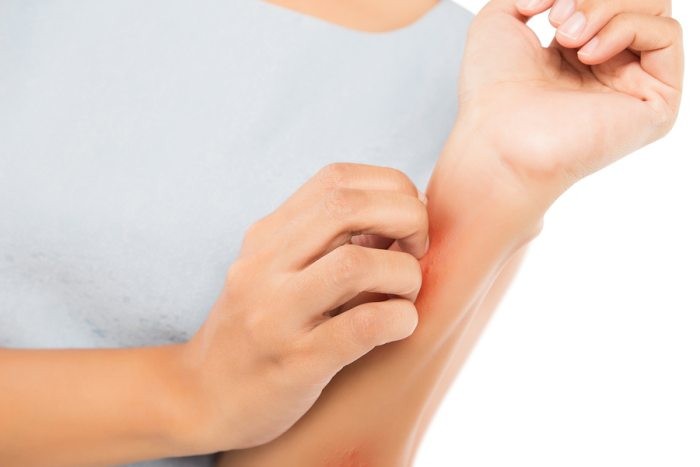Can cetirizine stop itching

Cetirizine - Brand names: Allacan, Benadryl Allergy, Piriteze Allergy, Zirtek Allergy
If you or your child have been prescribed cetirizine, follow your doctor's instructions about how and when to take it. If it is from a pharmacy or shop, follow the instructions that come with the packet.
Dosage and strength
Cetirizine comes as tablets and capsules (10mg) and as a liquid medicine (labelled either 5mg/5ml or 1mg/1ml).
The usual dose for adults is 10mg once a day.
Doses are usually lower for people with kidney problems.
Children
- For children between 6 to 11 years of age, the usual dose is 5mg, twice a day. Try to leave 10 to 12 hours between doses. So, one first thing in the morning, and one before bedtime.
- For children between 2 to 5 years of age, the dose is 2.5mg, twice a day.
- For children between 1 to 2 years of age, your doctor will use their weight or age to work out the right dose.
How to take it
You can take cetirizine with or without food, but always take the tablets or capsules with a drink of water, milk or squash. Swallow them whole. Do not chew them.
Cetirizine liquid may be easier for children to take than tablets. The liquid medicine will come with a plastic syringe or spoon to give the right dose. If you do not have a syringe or spoon, ask your pharmacist for one. Do not use a kitchen teaspoon as it will not measure out the right amount.
When to take it
You may only need to take cetirizine on a day you have symptoms for example, if you have been in contact with something that has triggered your allergy, like animal hair.
Or you may need to take it regularly to prevent symptoms for example, to stop hay fever during spring and summer.
What if I forget to take it?
Take your forgotten dose as soon as you remember, unless it's nearly time for your next dose. In this case, skip the missed dose and take your next dose at the usual time.
Do not take 2 doses to make up for a forgotten dose.
If you forget to give a dose to a child who is taking cetirizine twice a day, you can give the missed dose if it's within 4 hours of when they should have had it.
If you remember more than 4 hours after, do not give the missed dose. Instead, wait until the next dose and carry on as normal.
If you often forget doses, it may help to set an alarm to remind you. You could also ask your pharmacist for advice on other ways to help you remember to take your medicine.
What if I take too much?
Cetirizine is generally very safe. Taking more than the usual dose is unlikely to harm you or your child.
If you take an extra dose, you might get some of the common side effects. If this happens or you're concerned, contact your doctor.
10 reasons your skin itches uncontrollably and how to get relief
 Biosimilars: 14 FAQs
Biosimilars: 14 FAQsFind answers to questions patients ask about this newer treatment option, including, Whats involved in switching from a biologic to a biosimilar?
Featured
 Laser hair removal
Laser hair removalYou can expect permanent results in all but one area. Do you know which one?
 Scar treatment
Scar treatmentIf you want to diminish a noticeable scar, know these 10 things before having laser treatment.
 Botox
BotoxIt can smooth out deep wrinkles and lines, but the results arent permanent. Heres how long botox tends to last.
Featured
 Find a Dermatologist
Find a DermatologistYou can search by location, condition, and procedure to find the dermatologist thats right for you.
 What is a dermatologist?
What is a dermatologist?A dermatologist is a medical doctor who specializes in treating the skin, hair, and nails. Dermatologists care for people of all ages.
What Is The Best Anthistamine For Itching?
Oct 05, 2017
Mildra asked
What is the best anti-histamine to take for bodily itchiness. I don't believe I have allergies but I believe histamine is released in areas on my body that I itch. I need something to calm those nerves down. Steroid ointments don't seem to work.
Answer
 To answer this question, we must first note that if histamine is being released, it would be considered some sort of immune reaction to a foreign pathogen. In may not be what we consider "typical allergy symptoms" such as watery eyes and a runny nose, but it would nonetheless still be considered an allergy. As such, it is important to try and discern the cause of the allergy and eliminate the allergen if possible.
To answer this question, we must first note that if histamine is being released, it would be considered some sort of immune reaction to a foreign pathogen. In may not be what we consider "typical allergy symptoms" such as watery eyes and a runny nose, but it would nonetheless still be considered an allergy. As such, it is important to try and discern the cause of the allergy and eliminate the allergen if possible.
For your symptoms, looking towards an antihistamine medication is a good idea. There are many different histamine receptors in the body but Histamine-1 (H1) receptors typically cause allergy symptoms including body itchiness. As such, we will look at a few different anti-histamine-1 (H1 antagonist) medications.
Most antihistamine medications can be purchased over the counter (OTC), although one that we are going to recommend is by prescription only. To start, let's look at the OTC histamines we recommend.
Diphenhydramine, which is the active ingredient in Benadryl, is sold over the counter and helps to provide fast-acting itch relief. Diphenhydramine is a first generation antihistamine and works by stopping and reversing the action of histamine on a persons blood vessels, and can therefore help the symptoms of an allergic reaction, like a persistent itch.
While diphenhydramine is generally a safe medication for those under the age of 65, it does cause drowsiness because it crosses the blood brain barrier and affects the central nervous system. Therefore, it is difficult for some people to take this medication orally throughout the day; In fact, many people use diphenhydramine to help them sleep at night and it is marketed under different names as a sleep aid. So although we typically see the best results with diphenhydramine, many people can't tolerate it during the day.
The good news is Diphenhydramine comes in a topical cream which a person can use to help relieve their itchiness without the drowsiness but it may not be as effective as taking it by mouth.
Although diphenhydramine is considered the first line agent with proven effectiveness, there are some other OTC options that shouldn't sedate you as much. The other OTC options are Claritin (loratadine), Allegra (fexofenadine), Zyrtec (cetirizine), Xyzal (levocetirizine), Chlor-Trimeton (Chlorpheniramine) and Tavist (clemastine).
While any of the above options could work for you, studies indicate that Xyzal (levocetirizine) is the most effective over the counter antihistamine for itching and uticaria (hives). It is the newest antihistamine that has been made available OTC and is the one I would recommend for you based on its evidence.
In terms of prescription medication, I would recommend you ask your doctor about hydroxyzine. It is a histamine-1 antagonist medication that can be used to both stop itchiness due to histamine release as well as the anxiety that may come along with all of the itching. As hydroxyzine is also a first generation antihistamine, it too can make a person sleepy and is typically dosed 3 times daily. It's just another option if everything you have tried thus far has been ineffective.
Finally, we mentioned at the beginning of the article that H1 receptors are mainly responsible for allergy symptoms. There is however, much evidence that suggests taking the combination of a histamine-1 and histamine-2 blocker works better than taking a histamine-1 medication alone for bodily itching. We often see patients prescribed both together and it seems to be more effective in some cases. Some examples of H2 blockers are Pepcid and Zantac. This could be an option to bring up with your doctor as well!
Antihistamines
Typesof antihistamine
There aremany types of antihistamine.
They're usually divided into2 main groups:
They also come in several different forms includingtablets, capsules, liquids, syrups, creams, lotions, gels, eyedrops and nasal sprays.
Which type is best?
There'snot muchevidence to suggest any particularantihistamine is better than any other at relieving allergy symptoms.
Some people findcertain types work well for them and others do not. You may need to try several types to find one that works for you.
Non-drowsy antihistamines are generally the best option, as they're less likely to make you feel sleepy. But types that make you feel sleepy may be better if your symptoms stop you sleeping.
Ask a pharmacist for advice if you're unsure which medicine to try as not all antihistamines are suitable for everyone.
Howto take antihistamines
Take your medicine as advised by the pharmacist or doctor, or as described in the leaflet that comes with it.
Before taking an antihistamine, you should know:
- how to take it including whether it needs to be taken with water or food, or how to use it correctly(ifeyedrops or a nasal spray)
- how much to take (the dose) this can vary depending on things such as your age and weight
- when to take it including how many times a day you can take it andwhen to take it (some types shouldbe taken before bedtime)
- how long to take it for some types can be used for a long time, but some are only recommended for a few days
- what to do if you miss a dose or take too much (overdose)
The advice varies depending on the exact medicine you're taking. If you're not sure how to take your medicine, ask a pharmacist.
Sideeffects of antihistamines
Like all medicines, antihistamines can cause side effects.
Side effects of antihistamines that make you drowsy can include:
- sleepiness (drowsiness) and reduced co-ordination, reaction speed and judgement do not drive or use machinery after taking these antihistamines
- dry mouth
- blurred vision
- difficulty peeing
Side effects ofnon-drowsy antihistamines caninclude:
- headache
- dry mouth
- feeling sick
- drowsiness although this is less common than witholder types of antihistamines
Check the leaflet that comes with your medicine for a full list of possible side effects and advice about when to get medicalhelp.
If you think your medicine has caused an unwanted side effect, you can report it through the Yellow Card Scheme.
Takingantihistamines with other medicines, food or alcohol
Speak toa pharmacist or GP before taking antihistamines if you're already taking other medicines.
There may be a risk the medicines do not mix, which could stop either from working properlyor increase the risk of side effects.
Examples of medicines thatcouldcause problems if takenwith antihistamines include some types of:
Try not to drink alcohol while taking an antihistamine, particularly if it's a type that makes you drowsy,as it can increase the chances of it making you feel sleepy.
Food and other drinks do not affect most antihistamines, but check the leaflet that comes with your medicine to make sure.
Whocan take antihistamines
Most people can safely take antihistamines.
But speak to a pharmacist or GPfor adviceif you:
Some antihistamines may not be suitable in these cases. A pharmacist or doctor can recommend one that's bestfor you.
Loratadine is usually recommended if you need to take an antihistamine in pregnancy. Loratadine or cetirizine are usually OK to take while breastfeeding.
Always check the leaflet that comes with yourmedicine to see if it's safe for you before taking it or giving it to your child.
Howantihistamines work
Antihistamines block the effects of a substance called histamine in your body.
Histamine is normally released when your body detects something harmful, such as an infection. It causes blood vessels to expand and the skin to swell, which helpsprotect the body.
But in people with allergies, the body mistakes something harmless such as pollen,animal hair or house dust for a threat and produces histamine. The histamine causes an allergic reaction with unpleasant symptoms including itchy, watering eyes, a running or blocked nose, sneezing and skin rashes.
Antihistamines help stop this happening if you take them beforeyou come into contact with the substance you're allergic to. Or they can reduce the severity ofsymptoms if you take them afterwards.
Find out more about your medicine
The leaflet that comes in the packet with your medicine will have detailed information about it, including how to take it and what side effects you might get.
If you no longerhave the leaflet that came with your medicine, you can search for an online versionof it using our medicines A to Z.
You may also find information on individual antihistamines onthese websites:
Page last reviewed: 16 May 2023 Next review due: 16 May 2026









